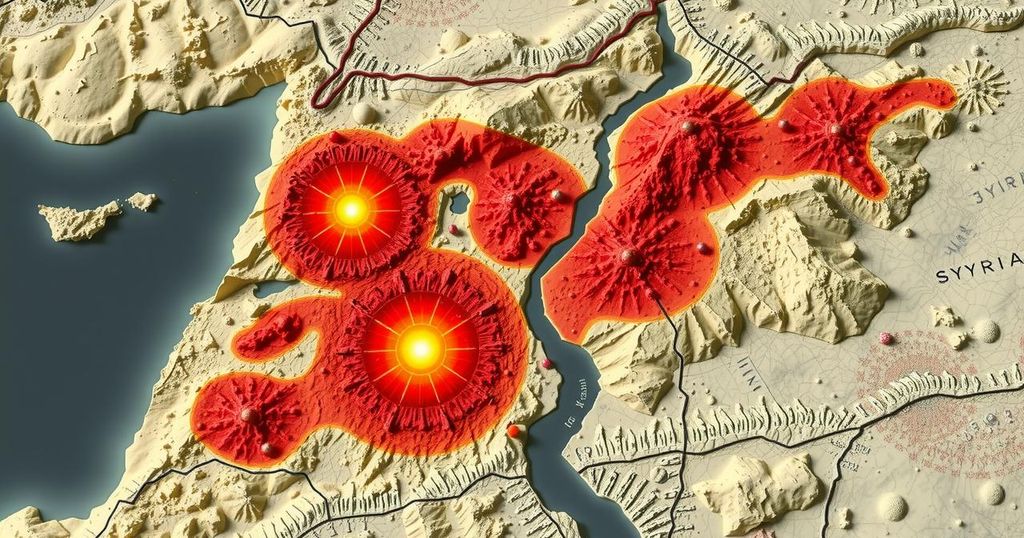The Seismic Impact of Israeli Airstrikes in Syria: Military Assault or Crime Against Humanity?

A recent Israeli airstrike in Syria was recorded as a 3.0 magnitude earthquake, demonstrating its destructive force. The strikes, part of a broader pattern of military action in the region, raise ethical questions about civilian impact and the motivations behind Israel’s strategic maneuvers amid ongoing regional instability. Concerns also emerge regarding the potential global repercussions of such violence.
A recent Israeli airstrike in Syria created a significant explosion that was recorded as a 3.0 magnitude earthquake on the Richter scale. This unprecedented incident reflects not only the intensity of the military action but also the broader geopolitical implications of Israel’s military strategies in the region. On December 16, the Israeli forces executed ten targeted airstrikes against military installations, resulting in widespread devastation that extended far beyond immediate borders, impacting neighboring countries.
Understanding the implications of a 3.0 earthquake requires familiarity with the Richter scale, which gauges seismic events based on geographic conditions and depth. Although categorized as a minor earthquake, tremors of this nature can have pronounced effects in regions near tectonic plates, such as Syria. The repercussions of these missile strikes reached areas over 500 miles away, raising concerns among observers about the far-reaching consequences of such military actions.
Additionally, there are ongoing discussions regarding the potential implications for the Earth’s core following the massive explosions, suggesting a more profound assault on the physical integrity of the planet alongside the humanitarian implications. The explosion raises serious questions about whether this act could be classified as a crime against humanity, particularly considering the civilian toll and the psychological impact of such military aggressions.
The motivations behind Israel’s aggressive posture in Syria appear to center on a quest for control amid the tumultuous political landscape. The ongoing unrest in Syria, particularly the weakening of Bashar al-Assad’s regime, presents an opportunity for Israel to advance its strategic objectives. Furthermore, statements from Israeli Prime Minister Benjamin Netanyahu underline the military’s prolonged presence in the vicinity of Mount Hermon, highlighting the sustained surveillance and influence in the region.
The history of Israeli military actions suggests a pattern of exploiting regional instability to solidify dominance over neighboring territories. Since October 7, 2023, Israel has conducted over 17,000 airstrikes across the Middle East, affecting various countries including Palestine, Syria, Lebanon, Iraq, and Yemen, prompting critical questions about the nature and justification of these military efforts. The silence of U.S. social justice advocates amid continuing American support for such operations further complicates the narrative.
The article discusses the implications of a recent Israeli airstrike that resulted in an explosion noticeable enough to register as a 3.0 magnitude earthquake on the Richter scale. The Richter scale measures seismic activity and understanding its significance is crucial to grasping the impact of such military actions, particularly in regions prone to tectonic instability. Additionally, the article delves into the motivations behind Israel’s military actions in Syria, especially in the context of the ongoing political instability in the region.
In summary, the Israeli airstrikes in Syria not only signify a profound military engagement, but they also raise pressing ethical questions regarding warfare and its humanitarian impact. The seismic effects of these strikes serve as a metaphor for the broader tectonic shifts in regional power dynamics, as Israel seeks to assert control amidst the chaos. The potential classification of such actions as crimes against humanity and the implications for global governance highlight the urgent necessity for international oversight and accountability.
Original Source: gvwire.com








